What Is Willpower? The Psychology Behind Self-Control
 We all wish we had more willpower, self-discipline, and self-control.
We all wish we had more willpower, self-discipline, and self-control.
After all, think about what we could do–and all we could achieve–if we did.
Several researchers believe increasing our understanding of willpower and self-control may be psychology’s best hope for contributing to human welfare (Baumeister & Tierney, 2011).
After all, the wealth of self-help books at the airport suggests we all need some help to form good habits and being more disciplined as we work towards our goals.
This article digs deeper into the psychology of willpower and the tools available to boost it.
Before you continue, we thought you might like to download our three Goal Achievement Exercises for free. These detailed, science-based exercises will help you or your clients create actionable goals and master techniques to create lasting behavior change.
This Article Contains:
What Is Willpower? Its Meaning & Definition
Neuroscience tells us that our prefrontal cortex–the part of the brain just behind our forehead–controls what we do. It directs what we pay attention to and think about–and even the emotions we experience (McGonigal, 2013).
So, when we put things off, watching TV instead of completing the tax form, that’s our prefrontal cortex at work.
And yet, this part of the brain is more than a single unified decision-maker. It has three key areas, each one helping us weigh up whether “I will,” “I will not,” or “I want” to do something.
The left side of this brain region helps us stick to tasks (I will)–even boring ones–while the right side (I will not) stops us from being distracted or giving in to temptation. Finally, in the middle, but lower down in our prefrontal cortex, the cells fire to keep us motivated and in line with our goals (I want) (McGonigal, 2013).
Sometimes, because of the ongoing competition within our brains, we fail. We don’t have the willpower to stick to the diet or get to the gym. Other times, we maintain the drive to push on, despite other interests, temptations, and distractions. Willpower is evident in the latter.
And “anyone with some life experience under their belt knows that they can accomplish more with a healthy sense of constraint and willpower” (Hollins, 2021, p. 15).
So, where does this leave us with our understanding – its meaning and definition?
According to the American Psychological Association (APA), “willpower is the ability to resist short-term temptations in order to meet long-term goals.” (American Psychological Association, 2012, para. 7).
We could define willpower and see its benefits as (American Psychological Association, 2012):
- Resisting short-term temptations and delay gratification to achieve long-term goals
- Overriding unwanted thoughts, feelings, or impulses
- Responding coolly and calmly rather than behave too emotionally
- Conscious, effortful regulation of oneself by oneself
- A limited resource that can be depleted
Understanding willpower is essential to recognizing why we behave as we do and how we develop our resilience.
Research into patients’ ability to combat disease and illness suggests that it is “willpower that gives an individual resilience to overcome difficulties” and “that which our heart and mind do not desire, we will not have the willpower to obtain” (Amdie, Sawhney, & Woo, 2022).
The Psychology Behind Willpower
“Whether you think you can, or you think you can’t – you’re right.”
Henry Ford (Goodreads, n.d.).
For a long time, psychologists thought of willpower as a limited resource—known as the ‘ego-depletion theory’ (American Psychological Association, 2012).
Work by Roy Baumeister led to the view that willpower is finite and–just like energy when muscles are overworked–can be used up. In his famous ‘cookie’ experiment, people who could resist eating them right away (called delayed gratification) had a more challenging time controlling temptation later in other tasks (Baumeister & Tierney, 2011).
The theory suggests that if you set more than one self-improvement goal, you may draw on willpower reserves, leaving you depleted and risking failure (Baumeister & Tierney, 2011).
And if willpower is a limited resource, we must use it wisely to achieve long-term goals (American Psychological Association, 2012).
And yet, recent and contradictory psychological research and theory suggest there isn’t a fixed amount of willpower. “Instead of thinking of willpower as the amount of petrol in a car…think of it as the car’s battery,” says Krishna Savani from Nanyang Technological University (Jarrett, 2018, para. 3).
Savani believes that with the right mindset and motivation, we can ‘own’ our self-control and willpower. And this is backed up by data. Studies show that people are less likely to quit a task when told their resolve is not fixed but unlimited.
While building willpower is not easy, psychology suggests that “a huge part of the solution is simply believing that you can do it” (Hollins, 2021, p. 36).
So, what happens when we do and don’t get things done?
It seems that mindset is crucial. Students coming up to exams that were told willpower was unlimited experienced less stress, fewer bad moods, and could step up their efforts. If we ‘believe’ we have the reserves available to tackle the challenges ahead, we increase our chances of future success (Jarrett, 2018).
4 Admirable Examples of Willpower
The following three powerful examples highlight the potential for willpower to change lives.
The first shows how it is possible to lose our strength of will and how it is influenced by the brain’s anatomy. The second shows the value of willpower in sports and the final displays the potential of good habits to improve business performance.
The curious case of Phineas Gage
While working on the railways in 1848, twenty-five-year-old Phineas Gage suffered a terrible accident. An iron rod pierced his skull at speed following an explosion, lodging itself in his prefrontal cortex. Although he survived the head injury, he experienced extreme changes to his personality, language, intelligence, motor functions, and self-control.
Previously calm, focused, and mentally strong, he was now impatient and impulsive. His friends described him as no longer being Gage—he had lost his most admired qualities, particularly his willpower.
The damage to the part of the brain we now know is associated with self-control meant that he no longer had the willpower to see tasks through to the end or to stop himself from succumbing to temptation. He never fully recovered (Zeigler-Hill & Shackelford, 2020; McGonigal, 2013).
The Remarkable Tale of Phineas Gage
A baseball legend
Kobe Bryant was an American basketball player widely regarded as one of the greatest of all time. He was known for his strong willpower and determination throughout his basketball career.
And yet, having joined a summer basketball camp at age 12, he didn’t score a single point. He was ready to give up on basketball, but then he read about how Michael Jordan was cut from his high school basketball team and how it became his motivation to outwork everyone around him (Robertson, 2016).
The story inspired Kobe to follow in Jordan’s footsteps and become the hardest worker in the game of basketball. He began showing up at the gym at 5 am and not leaving until 7 pm while in high school. He put himself through four hours of intense workouts even on game days, played one-on-one games up to 100 points after practice, and worked on his skills with no one else or a ball to perfect his footwork.
Michael Jordan was a role model and inspiration for Kobe, greatly influencing his willpower and motivating him to achieve his goals.
Sadly, Kobe’s life was cut short by a devastating helicopter crash in 2020 that killed him and his daughter, yet he was to become an inspiration for his fans, and his commitment a lesson to us all (Gooden, 2022).
Making a stand for civil rights
Rosa Parks never imagined that her bus journey home would result in her becoming a figurehead for the US civil rights movement.
And yet, on December 1, 1955, when she was arrested for refusing to give up her seat for a white person, it led to a 381-day boycott and the ultimate repeal of racial segregation on buses (Bredhoff, Wynell, & Potter, 1999).
Rosa Parks’ strength of will caused one small act of defiance that was part of something that changed history and her being called by the United States Congress “the first lady of civil rights.” (Wikipedia Foundation, 2023).
Creating good habits to boost willpower
James Clear talks about the importance of good strategies in his book “Atomic Habits” and offers the following example of how they can drive willpower (Clear, 2018).
When Trent Dyrsmid began his job at a bank in 1993, he was young and inexperienced – so no one expected much from him. And yet, he formed a powerful habit that boosted his commitment and willpower.
He started each day with two jars: one with 120 paper clips and the other empty. Each time he made a sales call, he moved one paperclip from the full jar to the empty one. He wouldn’t stop until the first jar was empty.
It sounds simple, and yet “[w]ithin eighteen months, Dyrsmid was bringing in nearly $5 million to the firm.” (Clear, 2018, p. 196). He was successful because the good habits he put in place drove his willpower and facilitated his desire for success.
How to Increase Your Willpower

Here are some actions and behaviors that can help boost your willpower (Jarrett, 2018; American Psychological Association, 2012; Baumeister & Tierney, 2011; McGonigal, 2013; Clear, 2022):
Strengthen your mind
“Psychological discomfort is created because you know you are avoiding your responsibilities, so you engage in a distraction to alleviate that discomfort.” (Hollins, 2021, p. 48). The following exercises can help strengthen your mind, helping you to not take the easy option, for example, choosing unhealthy eating habits or remaining inactive:
- Practice mindfulness meditation
To improve self-control and help individuals act from intention rather than habit or craving. - Get enough sleep
Physical and mental fatigue can decrease willpower, so it’s essential to maintain energy levels by getting sufficient and good quality sleep each night. - Use food- or fitness-tracking apps
Tracking what we do or don’t do can help individuals make healthier eating choices and provide encouragement to get up and move by tracking movement and exercise.
Develop your personal control
When we have confidence in our abilities and believe in our willpower, we are better able to keep or regain control (Hollins, 2021).
- Set clear and specific goals
A clear understanding of your goals can help increase motivation and self-control. - Break down large goals into smaller, more manageable tasks
Smaller chunks of work that build up to larger goals make it easier to focus on progression and stay motivated. - Work with a mental health professional
Therapists and counselors can provide guidance and support in increasing willpower and building healthy habits.
Delivering your full potential
Sometimes our biases change how we see opportunities and make us focus more on risks than benefits. Making decisions based on reason can help us realize our full potential along with a kinder, more optimistic view of what we have to offer (Hollins, 2022).
- Challenge yourself
Push yourself out of your comfort zone by taking on complex but not impossible tasks. Practice and repetition will boost willpower. - Practice self-compassion
Be kind and understanding with yourself when you make mistakes or stumble, and don’t let setbacks discourage you from continuing to work on increasing your willpower. - Get support from others
Surround yourself with people who encourage and support your efforts to increase your willpower.
It’s essential to remember that willpower is like a muscle and that progress may not always be immediate or linear. Furthermore, like physical exercise, our mental resolve and self-control can be strengthened with practice and pushing against perceived limits.
Note that there is no “right” amount of willpower, but we ought to develop what is needed to live a happy, healthy life where we flourish (Seligman, 2011; Jarrett, 2018).
4 Best Books on Willpower & Psychology
The following books all provide helpful insights regarding developing willpower:
1. The Willpower Instinct: How Self-Control Works, Why It Matters, and What You Can Do to Get More of It – Kelly McGonigal
Stanford University psychologist Kelly McGonigal has combined cutting-edge insights from psychology, economics, neuroscience, and medicine to explain the meaning of willpower and how to use it to transform our lives.
Use the advice and tools provided to reduce willpower failures and regain self-control.
Find the book on Amazon.
2. Willpower: Rediscovering the Greatest Human Strength – Roy Baumeister & John Tierney
Research scientist Roy Baumeister teams up with New York Times science writer John Tierney in this book to explore the concept of willpower and self-control.
Use the lessons they describe to focus on your strengths, resist temptation, and work towards what you want out of life.
Find the book on Amazon.
3. The Power of Self-Discipline: 5-Minute Exercises to Build Self-Control, Good Habits, and Keep Going When You Want to Give Up – Peter Hollins
Self-discipline dictates a great deal of what we receive in life. Learn more about your discipline style and better understand the emotional, psychological, and biological obstacles in your way.
Peter Hollins has created a valuable toolkit of techniques that will help ensure your actions align with your intentions.
Find the book on Amazon.
4. The Self-Discipline Manual: How to Achieve Every Goal You Set Using Willpower, Self-Control, and Mental Toughness – Peter Hollins
When we lack energy, we typically underachieve. This book discusses motivation and discipline techniques and how we can use them to attack our daily tasks and habits.
Learn more about self-control and how to hack your body’s limitations in this fascinating book.
Find the book on Amazon.
Resources from PositivePsychology.com
We have many resources available for therapists providing support to individuals wishing to boost their willpower and target their self-control.
Our free resources include the following:
- Self-Control Spotting for Children
It is tremendously helpful for children to learn early on about what they can and cannot control. In this exercise, children are asked to reflect upon and discuss whether or not the eight activities supplied reflect self-control. - WDEP Questions Worksheet
These four sets of questions help individuals reflect on what they want, what they are doing, whether it is working, and how to change things for the better. - Avoidance Plan Worksheet
Use this three-step process to identify the behaviors you wish to change, their triggers, and healthy avoidance strategies.
More extensive versions of the following tools are available with a subscription to the Positive Psychology Toolkit©, but they are described briefly below:
- Increasing self-control through repeated practice
Self-control is the exertion of control over the self by the self. Research has shown that engaging in some self-control activities regularly for two weeks can lead to improvements in willpower:
-
- Step 1: Choose an act of self-control that you will try to complete daily
- Step 2: Determine when, where, and how you will complete it
- Step 3: Keep a record of whether you completed your act of self-control
- Behavioral activation
Behavioral activation refers to encouraging people to deliberately engage in activities associated with the experience of pleasure or mastery.
In this exercise, you develop ways to become more active and measure how you feel before and after these activities to see whether they help boost your mood.
Step 1: Log your current activities
Step 2: Categorize each one as either ‘Energy Giving’ or ‘Energy Draining’
Step 3: Determine whether energy-giving activities are simply for pleasure or learning a skill
Step 4: Add more pleasure and mastery activities into your day
Step 5: Plan more energy giving activities
If you’re looking for more science-based ways to help others reach their goals, this collection contains 17 validated motivation & goals-achievement tools for practitioners. Use them to help others turn their dreams into reality by applying the latest science-based behavioral change techniques.
A Take-Home Message
Willpower, self-discipline, and self-control are valuable abilities that can help us achieve our goals.
Willpower provides us with the ability to resist short-term temptations while we focus on long-term goals, giving us the capacity to override unwanted thoughts, feelings, and impulses. When strong-willed, we can respond coolly and calmly rather than rashly and emotionally.
Some believe willpower is limited, while others consider it something that can be re-filled and infinite. Either way, it can be grown, becoming a habit that we can practice daily through learning practical strategies and pushing ourselves toward new challenges.
Studies suggest people are less likely to quit a task when they believe their willpower is unlimited and that a considerable part of the solution is simply thinking that you can do it.
Work with your clients to understand how and when their willpower may lack and how it stops them from achieving what they want. Work with them to help them realize the unbounded nature of willpower and try out some practices shared within this article to become their best selves.
We hope you enjoyed reading this article. Don’t forget to download our three Goal Achievement Exercises for free.
- Amdie, F. Z., Sawhney, M., & Woo, K. (2022). The Weakness of Will: The Role of Free Will in Treatment Adherence. Patient preference and adherence, 16, 1131–1139.
- American Psychological Association. (2012, December 1). What you need to know about willpower: The psychological science of self-control. Retrieved January 26, 2023, from https://www.apa.org/topics/personality/willpower
- Baumeister, R. F., & Tierney, J. (2011). Willpower: Rediscovering the greatest human strength. Penguin Books.
- Bredhoff, S., Wynell, S., & Potter, L-A. (1999). The Arrest Records of Rosa Parks. Social Education 63, 4: 207-211.
- Clear, J. (2018). Atomic habits: An easy & proven way to build good habits & break bad ones. Penguin.
- Clear, J. (2022). Willpower. James Clear. Retrieved January 27, 2023, from https://jamesclear.com/willpower
- Gooden, T. (2022). Kobe Bryant: The life story you may not know. Stacker. Retrieved January 27, 2023, from https://stacker.com/celebrities/kobe-bryant-life-story-you-may-not-know
- Goodreads. (n.d.). A quote by Henry Ford. Goodreads. Retrieved January 26, 2023, from https://www.goodreads.com/quotes/978-whether-you-think-you-can-or-you-think-you-can-t–you-re
- Hollins, P. (2021). The power of self-discipline: 5-minute exercises to build self-control, good habits, and keep going when you want to give up. Peter Hollins.
- Hollins, P. (2022). The Self-Discipline Manual: How to Achieve Every Goal You Set Using Willpower, Self-Control, and Mental Toughness. Independently published.
- Jarrett, C. (2018). Don’t quit now: Why you have more willpower than you think. New Scientist. Retrieved January 26, 2023, from https://www.newscientist.com/article/mg23531420-400-dont-quit-now-why-you-have-more-willpower-than-you-think/
- McGonigal, K. (2013). The willpower instinct: How self-control works, why it matters, and what you can do to get more of it. Avery.
- Robertson, C. (2016). 5 lessons world class athletes can teach us about willpower. Willpowered. Retrieved January 27, 2023, from http://willpowered.com/learn/world-class-athletes-willpower
- Seligman, M. (2011). Flourish: A new understanding of happiness and well-being and how to achieve them. London: Nicholas Brealey Publishing.
- Wikipedia Foundation. (2023). Rosa Parks. Wikipedia. Retrieved February 8, 2023, from https://en.wikipedia.org/wiki/Rosa_Parks
- Zeigler-Hill, V., & Shackelford, T. K. (2020). Encyclopedia of personality and individual differences. Springer.
Let us know your thoughts
Read other articles by their category
- Body & Brain (50)
- Coaching & Application (57)
- Compassion (26)
- Counseling (51)
- Emotional Intelligence (24)
- Gratitude (18)
- Grief & Bereavement (21)
- Happiness & SWB (40)
- Meaning & Values (26)
- Meditation (20)
- Mindfulness (45)
- Motivation & Goals (45)
- Optimism & Mindset (34)
- Positive CBT (29)
- Positive Communication (20)
- Positive Education (47)
- Positive Emotions (33)
- Positive Leadership (18)
- Positive Parenting (4)
- Positive Psychology (33)
- Positive Workplace (37)
- Productivity (17)
- Relationships (46)
- Resilience & Coping (38)
- Self Awareness (21)
- Self Esteem (38)
- Strengths & Virtues (32)
- Stress & Burnout Prevention (34)
- Theory & Books (46)
- Therapy Exercises (37)
- Types of Therapy (64)

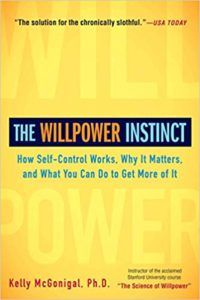
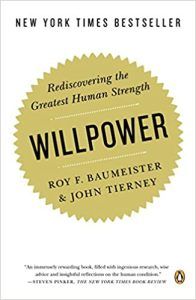
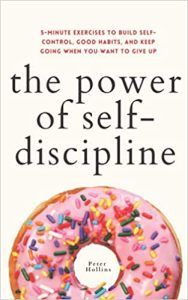
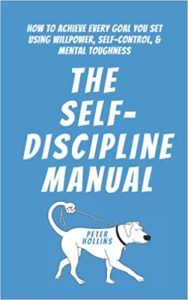
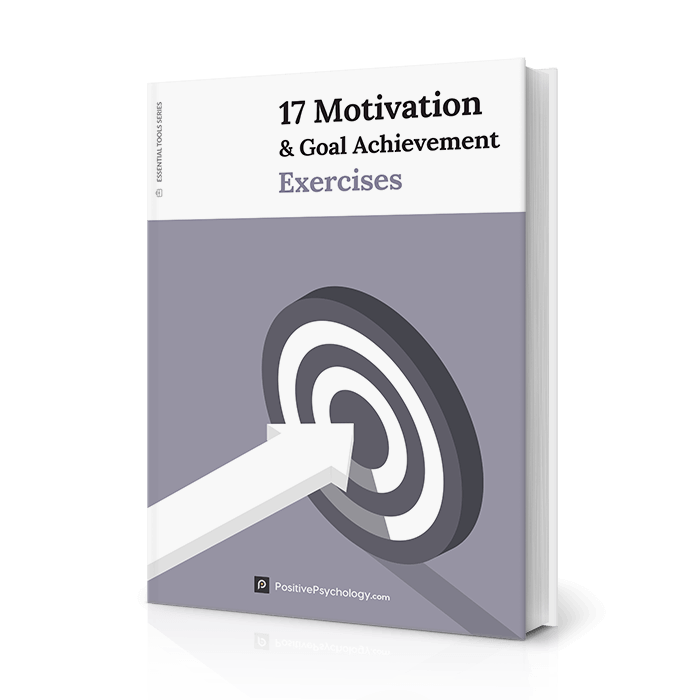




What our readers think
An interesting and thought provoking article in which I recognised a number of traits that I have and need to address. Incredibly informative and written in simple easy to understand language. Many thanks for the effort to research, analyse and report. Your work in greatly appreciated and will be used to the best of my ability.
Thank you so much for writing this and providing these valuable inputs. If you convert these advices into the monetary terms, I am sure it will be in millions.
sustaining will power would be significantly important. there will be many temptations as people progress through life. the degree of will power required for temptations which might impact large areas of life could be few but their effect could be very powerfully disruptive. for example adopting unethical practices to make quick money. This is both a challenge at individual core value level at
the organisational level. There are temptations for diluting personal integrity for attractive rewards
thanks alot of information
I always act in away I never wish to act. In area of womanising.How can one willpower help to stop this damaging act. Sometimes just to satisfy the mind of the opposite sex. I will compromised. I need your help
Hi Moses,
I’m sorry to read you are struggling. When we feel that we’re not in control of our behavior (whether it’s drinking, sex, gambling, etc.) and we find ourselves doing things we regret or that harm ourselves or our relationships, it’s usually worthwhile speaking with a professional to get some support. Psychology Today has a great directory you can use to find therapists in your local area (and note you can change the country setting in the top-right corner): https://www.psychologytoday.com/us/therapists
I hope this helps and I wish you all the best.
– Nicole | Community Manager
Thank you so much for this article! This was exactly what I needed.
One the best and usefull and effective articles I have read in all of my life.
I would like to thank the writter, i do not know him/her but i shake his/her hand warmly from iran and i wish bests for him/her. Thank you so so much.
Interesting Article,I liked it,it is more relevant and appealing to my previous readings on Will Power.
thankyou so much for sach a big life lession i feel better , it’s change outlook of lifre